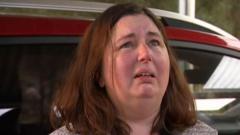Despite Dutton's long-standing connections in Moreton Bay, disillusioned locals and a new wave of voters led to his defeat, revealing deeper socio-political changes.
### Queensland's Voter Shift: Peter Dutton's Downfall in His Own Backyard

### Queensland's Voter Shift: Peter Dutton's Downfall in His Own Backyard
A closer look at how Peter Dutton's polling stronghold turned against him in the recent Australian elections.
In the recent Australian election, the results shocked many, particularly former Liberal Party leader Peter Dutton, who faced an unexpected defeat in his home seat of Dickson. Known for his controversial political persona, Dutton's popularity in Queensland did not translate to votes as Labor surged thanks to burgeoning demographics and dissatisfaction within his own heartland.
Dutton's home region, Moreton Bay, had historically been a Liberal stronghold, but economic expansion has transformed the area. Once considered a blend of urban and semi-rural characteristics, it is now densely populated with young families seeking affordable housing, leading many voters to prioritize their cost-of-living concerns. Campaigners and residents alike voiced that his long-standing ties to the community did not sway them to continue supporting a representative who many felt had grown out of touch.
As sentiments shifted, young voters, especially women, emerged as crucial players in the election, rebuking Dutton's leadership style and negative connotations associated with the "Dutton effect." This election highlighted underlying themes of emotional resonance versus policy effectiveness as constituents voiced their desire for relatability in political leaders.
Many within the electorate expressed that dissatisfaction stems as much from Dutton's personal image as it does from the policies he promoted. With impending changes in Australian political dynamics, Dutton's loss underscores a potential shift in voter priorities and highlights a growing need for leaders who resonate with their community's evolving values and expectations.
Ultimately, the Coalition's losses in Queensland reveal not merely a rejection of Dutton, but signal a broader search for authentic and empathetic representation in Australia’s future leadership. The results may indicate that voter sentiment is moving beyond traditional party affiliations, demanding change from within the system.
Dutton's home region, Moreton Bay, had historically been a Liberal stronghold, but economic expansion has transformed the area. Once considered a blend of urban and semi-rural characteristics, it is now densely populated with young families seeking affordable housing, leading many voters to prioritize their cost-of-living concerns. Campaigners and residents alike voiced that his long-standing ties to the community did not sway them to continue supporting a representative who many felt had grown out of touch.
As sentiments shifted, young voters, especially women, emerged as crucial players in the election, rebuking Dutton's leadership style and negative connotations associated with the "Dutton effect." This election highlighted underlying themes of emotional resonance versus policy effectiveness as constituents voiced their desire for relatability in political leaders.
Many within the electorate expressed that dissatisfaction stems as much from Dutton's personal image as it does from the policies he promoted. With impending changes in Australian political dynamics, Dutton's loss underscores a potential shift in voter priorities and highlights a growing need for leaders who resonate with their community's evolving values and expectations.
Ultimately, the Coalition's losses in Queensland reveal not merely a rejection of Dutton, but signal a broader search for authentic and empathetic representation in Australia’s future leadership. The results may indicate that voter sentiment is moving beyond traditional party affiliations, demanding change from within the system.




















